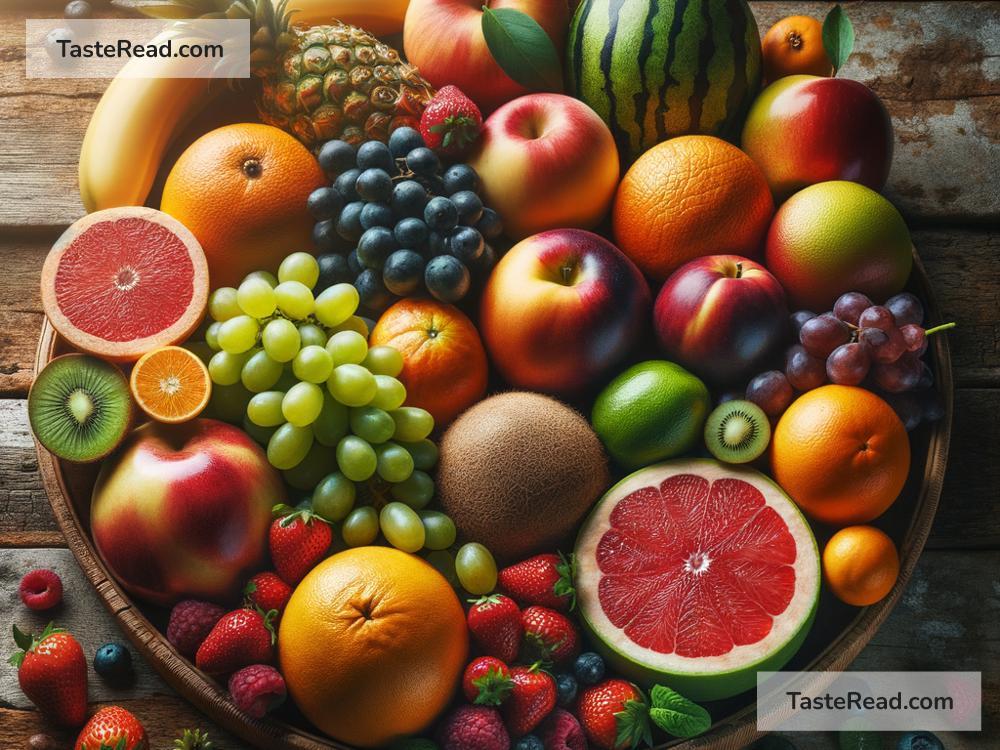The Impact of Fruit Maturity on Taste
Have you ever bitten into a strawberry that looked perfect but tasted sour, or picked an apple that felt too soft and mushy? These experiences often come down to one thing—fruit maturity. The ripeness of fruit plays a big role in how it tastes, as well as its texture, aroma, and overall appeal. Understanding how fruit maturity affects taste can help us enjoy fruit at its flavorful best and make smarter choices when shopping. Let’s explore how maturity changes the taste of fruits in simple terms.
What Does “Fruit Maturity” Mean?
Fruit maturity refers to the stage of growth when a fruit is ready to be harvested. It doesn’t always mean the fruit is ready to eat. Fruits go through different phases: immature, mature (but not ripe), and ripe. Immature fruits aren’t fully developed and often lack sweetness or flavor. Mature fruits have completed their growth but might still improve in taste if given time to ripen. Finally, ripe fruits are the peak of flavor—they’re sweet, juicy, and aromatic.
It’s important to know the difference between maturity and ripeness. Maturity is like a fruit becoming an adult, while ripeness is when it becomes delicious.
How Maturity Affects Taste
The taste of fruit depends on several factors, including sugars, acids, and aromatic compounds. These elements change significantly as fruit matures. Here’s how maturity impacts taste in simple terms:
1. Sweetness
At the immature stage, most fruits have low amounts of sugar. They taste bland or sour because their starches haven’t converted into sugars yet. As fruits mature and ripen, enzymes break down the starch into glucose and fructose, which are natural sugars. This process makes the fruit taste sweeter. For example, think about a green banana versus a yellow one—green bananas taste starchy and less enjoyable, while yellow bananas are sweet and delicious.
2. Acidity
Fruits also contain acids that contribute to their taste. Immature fruits often taste sour because they have high levels of acid and haven’t developed enough sugar to balance it out. As they mature, some acids break down, reducing the sourness. However, the right balance between acidity and sweetness is important. Fruits like oranges or pineapples have a sweet-and-tangy flavor because they retain some acidity even when ripe.
3. Aromatic Compounds
Have you ever noticed how ripe fruits smell amazing? That’s because maturity impacts the development of aromatic compounds. Immature fruits often have a weak scent or none at all. As fruits ripen, they produce natural chemicals responsible for their pleasant aroma. Mangoes, melons, and peaches release a sweet, fruity fragrance as they ripen, signaling that they’re ready to eat.
Texture and Fruit Maturity
Taste isn’t the only thing impacted by fruit maturity—texture plays a key role, too. Immature fruits are often hard and crunchy because their cells haven’t softened. As fruits mature, enzymes start breaking down the cell walls, making them softer and juicier.
For instance, take a pear. An immature pear is firm and less juicy, while a ripe pear is tender, easy to bite, and full of flavor. However, if a fruit gets overripe, it can become too soft and mushy, making it less enjoyable to eat.
Maturity Matters for Different Types of Fruits
Not all fruits mature and ripen the same way. Some fruits, like bananas, tomatoes, and avocados, continue to ripen after being picked. These are called climacteric fruits. You can buy them when they’re mature but not ripe and let them finish ripening at home.
Other fruits, like berries, grapes, and apples, are called non-climacteric fruits. These need to be picked when fully ripe because they won’t improve much in taste after being harvested. If you pick them too soon, they’ll likely stay sour or bland.
Why Fruit Maturity Matters
Knowing about fruit maturity helps us choose fruits with great flavor. If you buy a climacteric fruit, you can look for one that’s mature (but not fully ripe) and let it ripen a bit more before eating. For non-climacteric fruits, it’s best to buy ones that are already ripe to get the best taste right away.
Farmers and distributors also care about maturity. If fruits are picked too early, they may not develop their full flavor by the time they reach consumers. On the other hand, picking fruits too late might mean they spoil more quickly during transportation. That’s why timing the harvest is so important.
Final Thoughts
The maturity of fruit is a big factor in how it tastes. As fruits grow and ripen, their sweetness increases, acidity balances out, and they develop delicious aromas. Finding perfectly ripe fruits can make all the difference when you’re craving something fresh and flavorful.
The next time you’re at the grocery store or farmer’s market, take a closer look at the fruits you pick. Are they ripe, or do they still need time to develop their best flavor? By understanding how maturity impacts taste, you can enjoy fruits at their brightest and sweetest—a simple pleasure that’s worth the effort!


